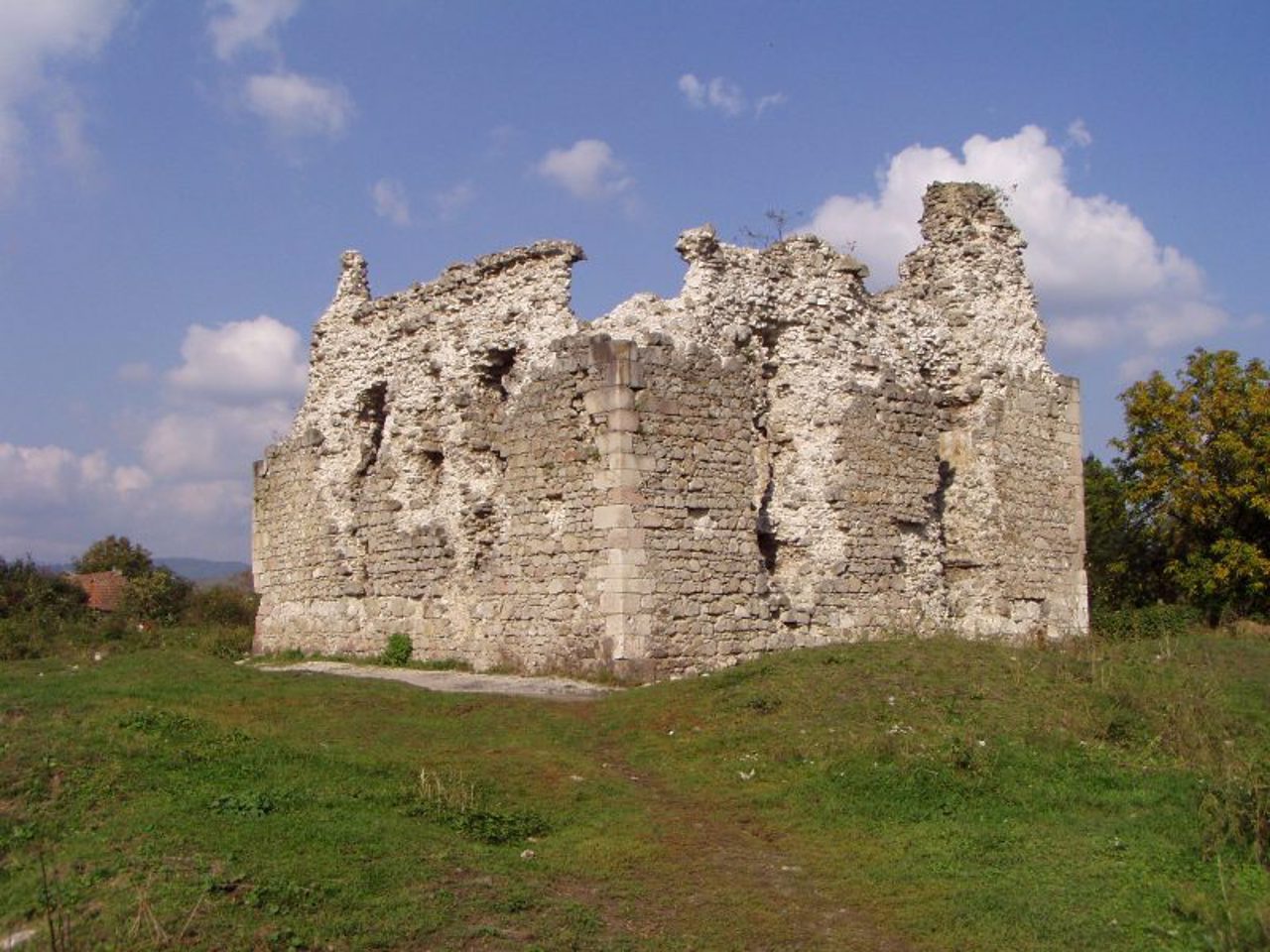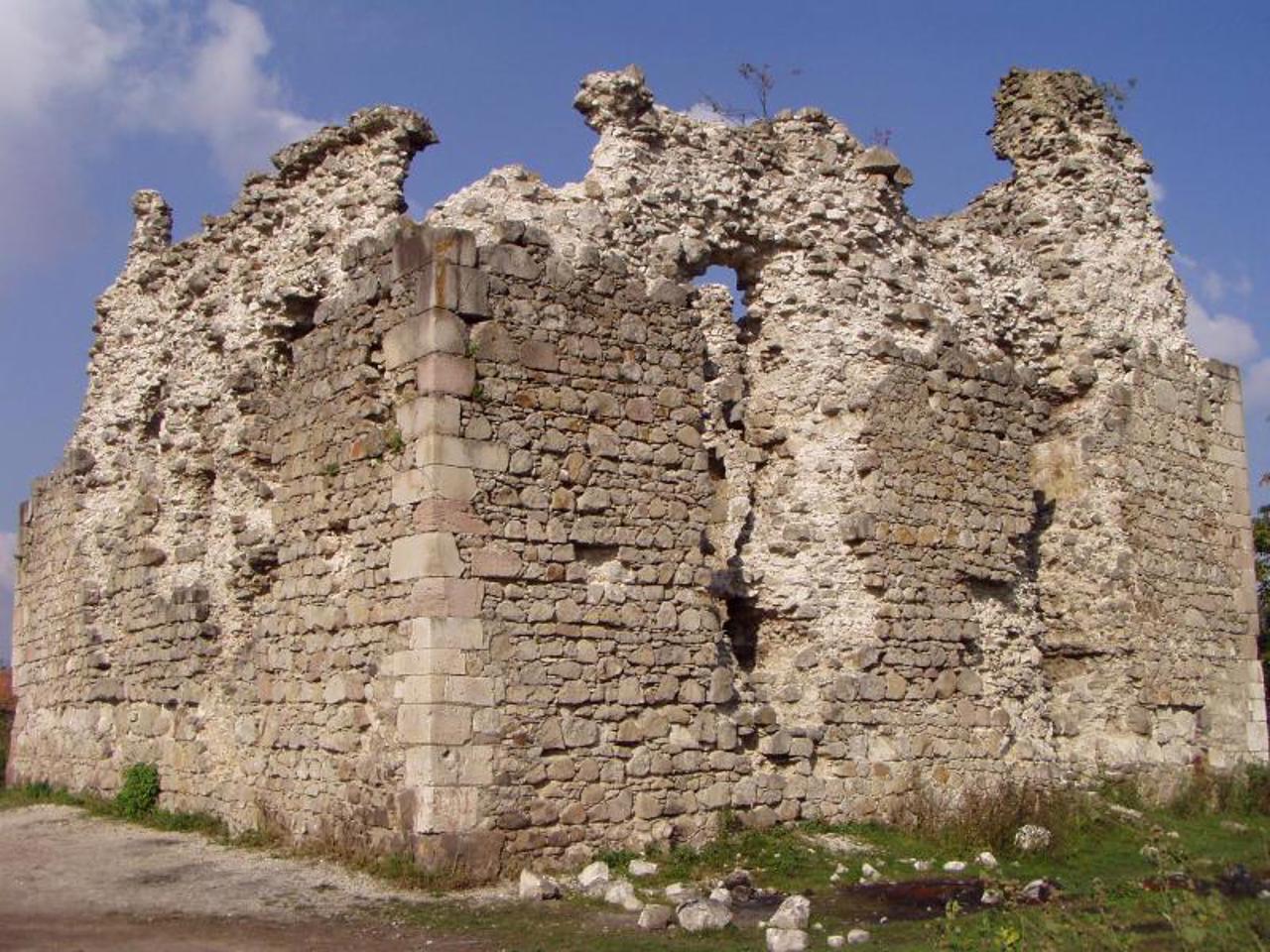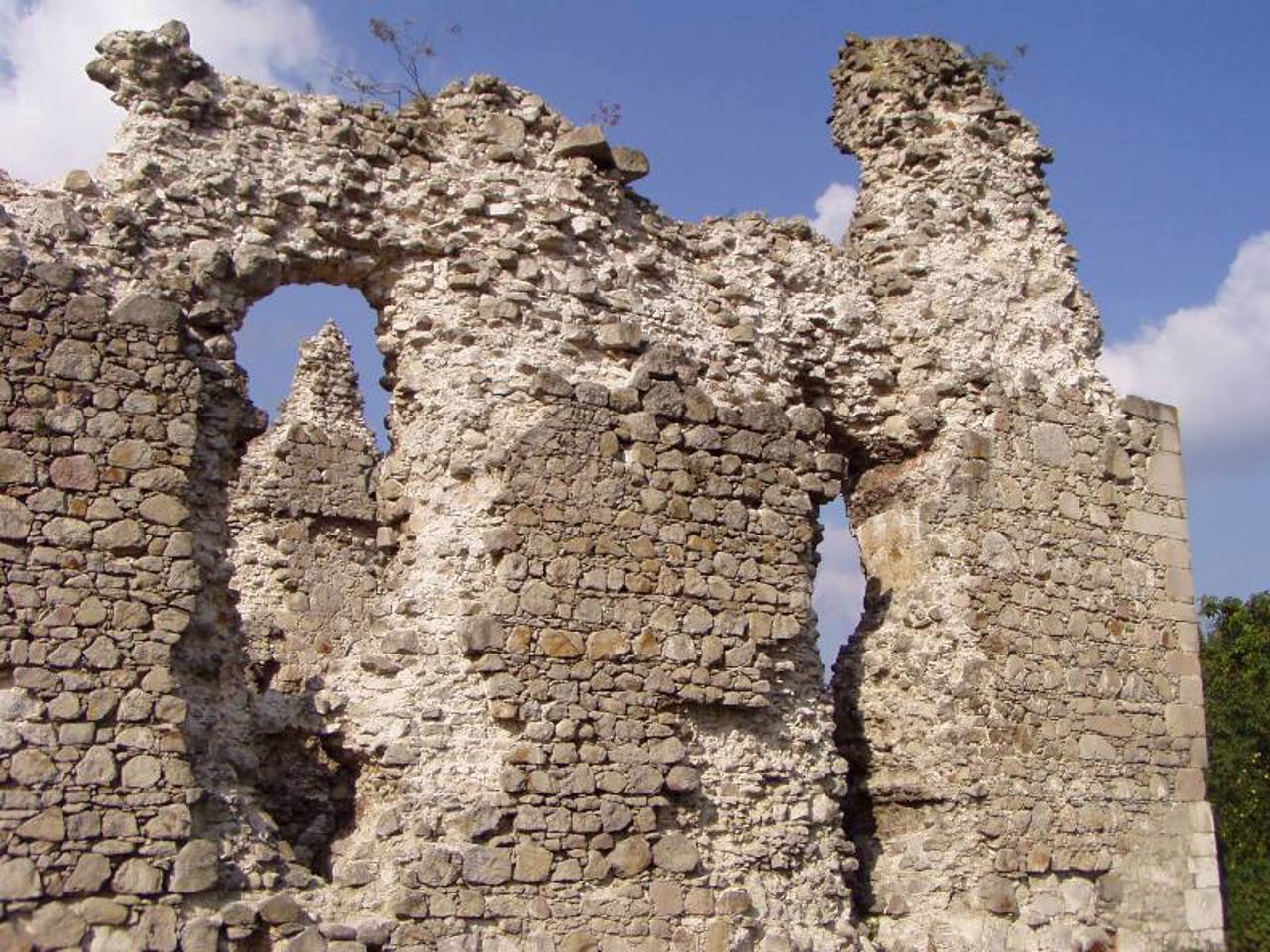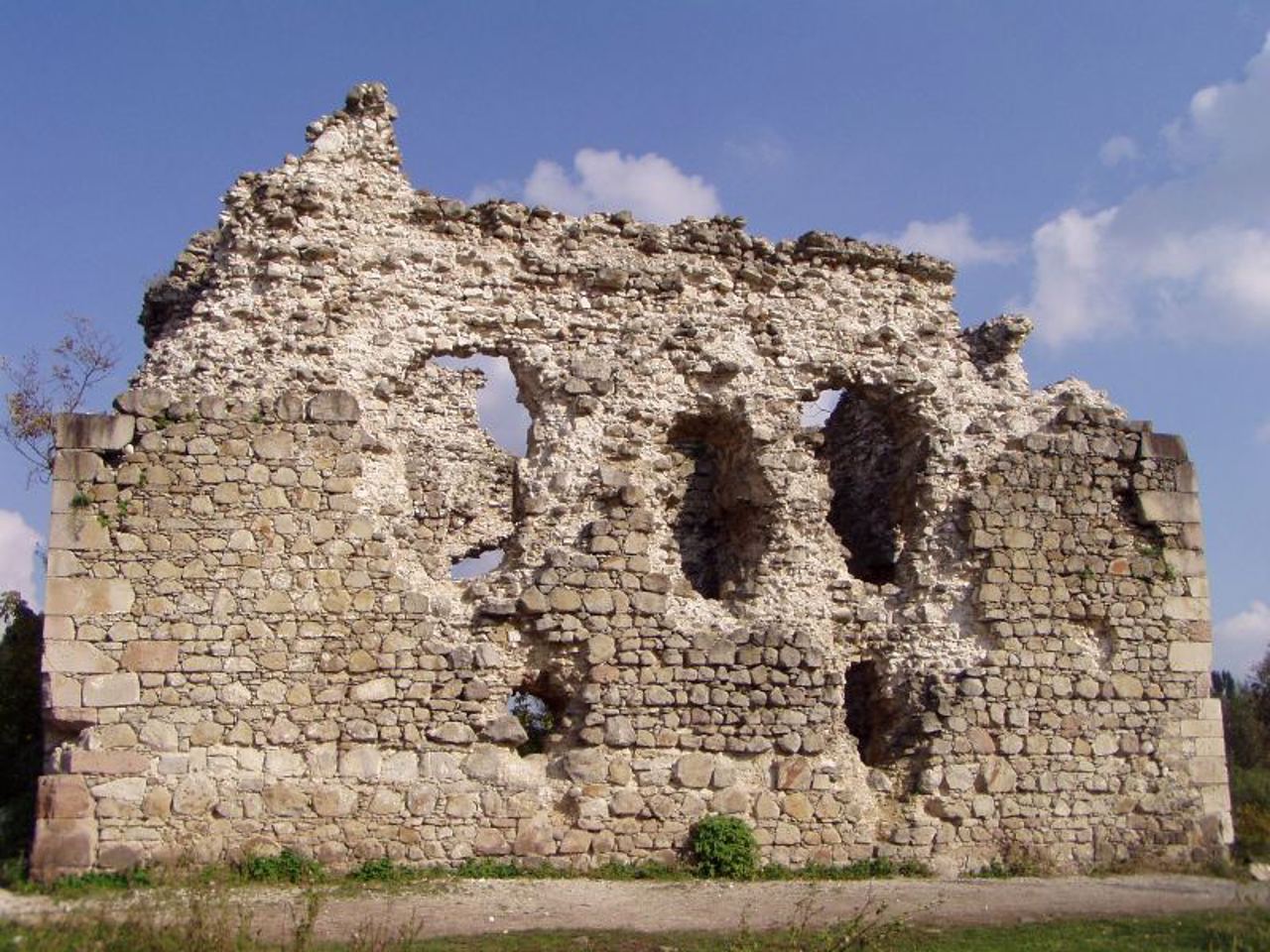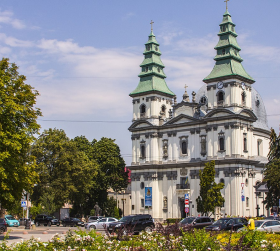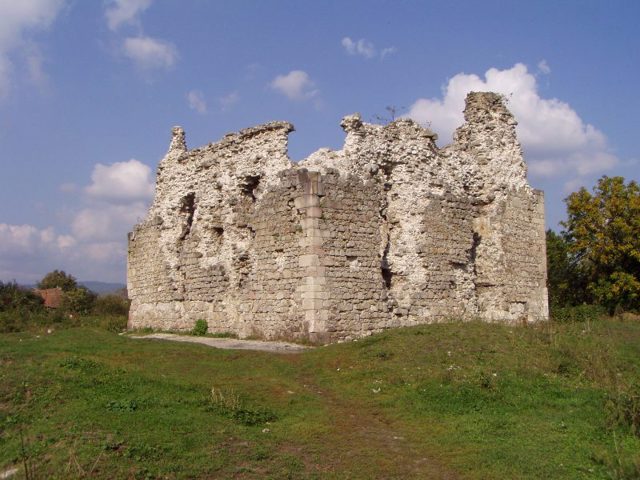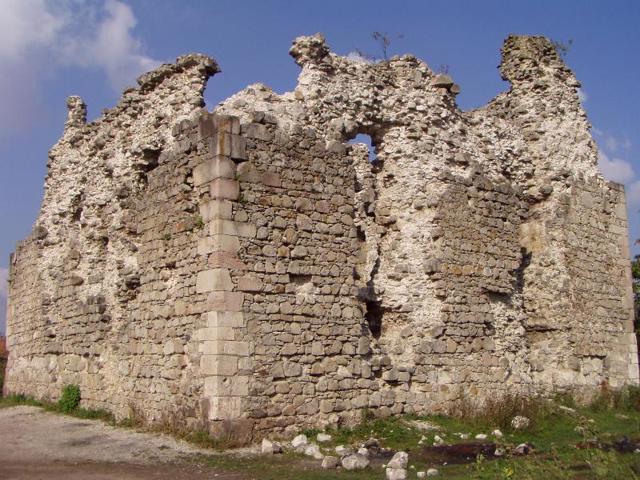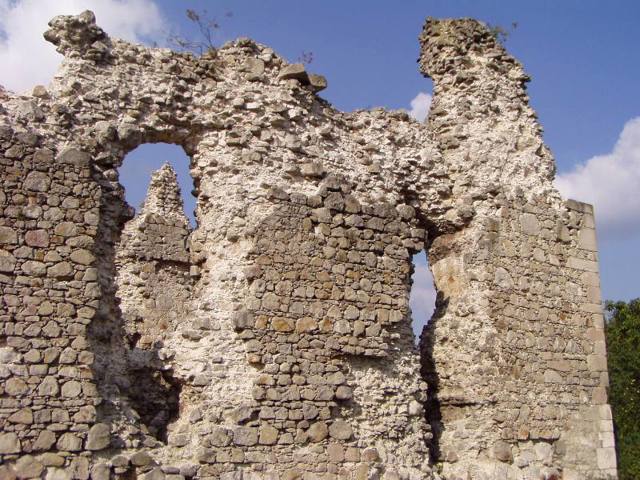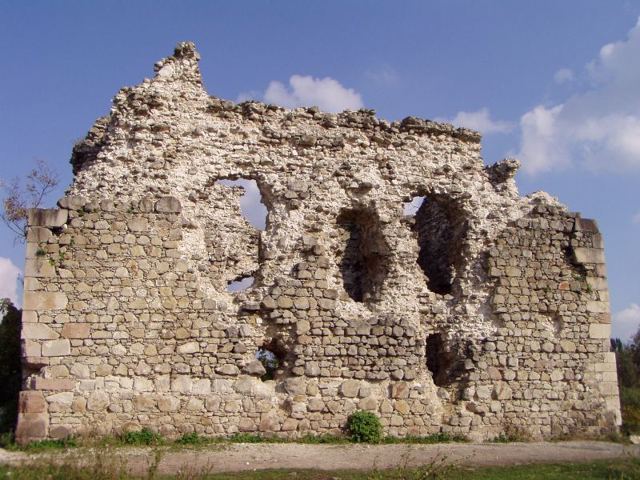Functional temporarily unavailable
Serednyansky Castle, Serednie
Castle / fortress
General information about Serednyansky Castle (Serednie)
The ruins of a powerful quadrangular tower-donjon are the only structure of the Serednyansky castle that has survived.
It was the main defensive node of the fortress, built by the Knights Templar like the ancient Roman border watchtowers on the Rhine and Danube. The thickness of the walls of the tower reached 3 meters. With the help of a chain of similar castles, the Templars controlled the salt route from Transcarpathia to Europe in the 12th-15th centuries.
After the liquidation of the Knights Templar, the castle briefly became the property of the monastic order of Saint Paul, and then was gifted by King Charles Robert to the Drugets magnates. In the 16th century, the new owners from the Dobo family, whose representative Ishtvan Dobo distinguished himself during the defense ...
The ruins of a powerful quadrangular tower-donjon are the only structure of the Serednyansky castle that has survived.
It was the main defensive node of the fortress, built by the Knights Templar like the ancient Roman border watchtowers on the Rhine and Danube. The thickness of the walls of the tower reached 3 meters. With the help of a chain of similar castles, the Templars controlled the salt route from Transcarpathia to Europe in the 12th-15th centuries.
After the liquidation of the Knights Templar, the castle briefly became the property of the monastic order of Saint Paul, and then was gifted by King Charles Robert to the Drugets magnates. In the 16th century, the new owners from the Dobo family, whose representative Ishtvan Dobo distinguished himself during the defense of the Eger fortress from the 120,000-strong Turkish army, took up the expansion and strengthening of the castle.
In the 17th and 18th centuries, Serednyansky Castle changed owners several times. It played an important role during the anti-Habsburg movement of the Hungarian nobles under the leadership of Ferents II Rakotsi in 1703-1711, as a result of which it was badly damaged and never recovered.
There is a legend about a complex system of underground passages, some of which were later converted into wine cellars.
Руїни потужної чотирикутної вежі-донжон - єдина споруда Середнянського замку, що збереглася.
Це був головний оборонний вузол твердині, споруджений лицарями-тамплієрами на зразок давньоримських прикордонних сторожових веж на Рейні та Дунаї. Товщина стін вежі досягала 3 метрів. За допомогою ланцюга подібних замків тамплієри у XII-XV сторіччях контролювали соляний шлях із Закарпаття до Європи.
Після ліквідації ордена тамплієрів Середнянський замок ненадовго перейшов у власність чернечого ордена Святого Павла, а потім був подарований королем Карлом Робертом магнатам Другетам. Розширенням та зміцненням замку зайнялися у XVI столітті нові власники з роду Добо, представник якого Іштван Добо відзначився під час оборони фортеці Егер від 120-тисячної турецької армії.
У XVII ...
Руїни потужної чотирикутної вежі-донжон - єдина споруда Середнянського замку, що збереглася.
Це був головний оборонний вузол твердині, споруджений лицарями-тамплієрами на зразок давньоримських прикордонних сторожових веж на Рейні та Дунаї. Товщина стін вежі досягала 3 метрів. За допомогою ланцюга подібних замків тамплієри у XII-XV сторіччях контролювали соляний шлях із Закарпаття до Європи.
Після ліквідації ордена тамплієрів Середнянський замок ненадовго перейшов у власність чернечого ордена Святого Павла, а потім був подарований королем Карлом Робертом магнатам Другетам. Розширенням та зміцненням замку зайнялися у XVI столітті нові власники з роду Добо, представник якого Іштван Добо відзначився під час оборони фортеці Егер від 120-тисячної турецької армії.
У XVII-XVIII століттях Середнянський замок кілька разів міняв господарів. Він відіграв важливу роль у часи антигабсбурзького руху угорських дворян під керівництвом Ференца ІІ Ракоці у 1703-1711 роках, внаслідок чого сильно постраждав та більше не відновлювався.
Існує легенда про складну систему підземних ходів, частина яких згодом була переобладнана під винні підвали.
Practical information about Serednyansky Castle (Serednie)
Last update
3/24/2025
| Categories | Castle / fortress |
|---|---|
| Date of foundation | XII-XV centuries |
| Address |
Zamkova Street
Serednie |
| Coordinates |
48.5389° N, 22.4977° E
|
| Additional services |
Аccessibility information
Have you visited Serednyansky Castle in Serednie?
Add practical or descriptive information, photos, links
What to see, where to go next?

